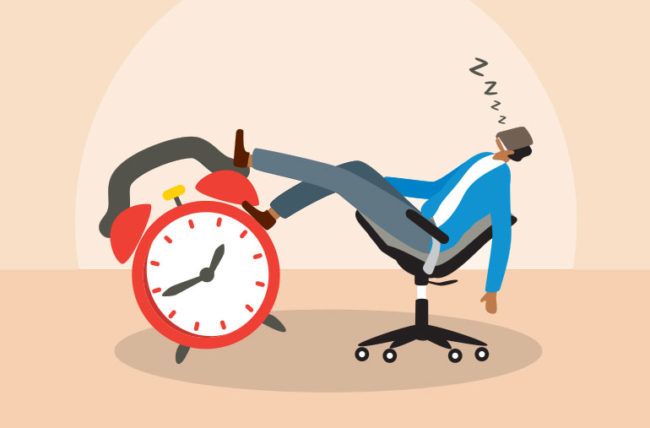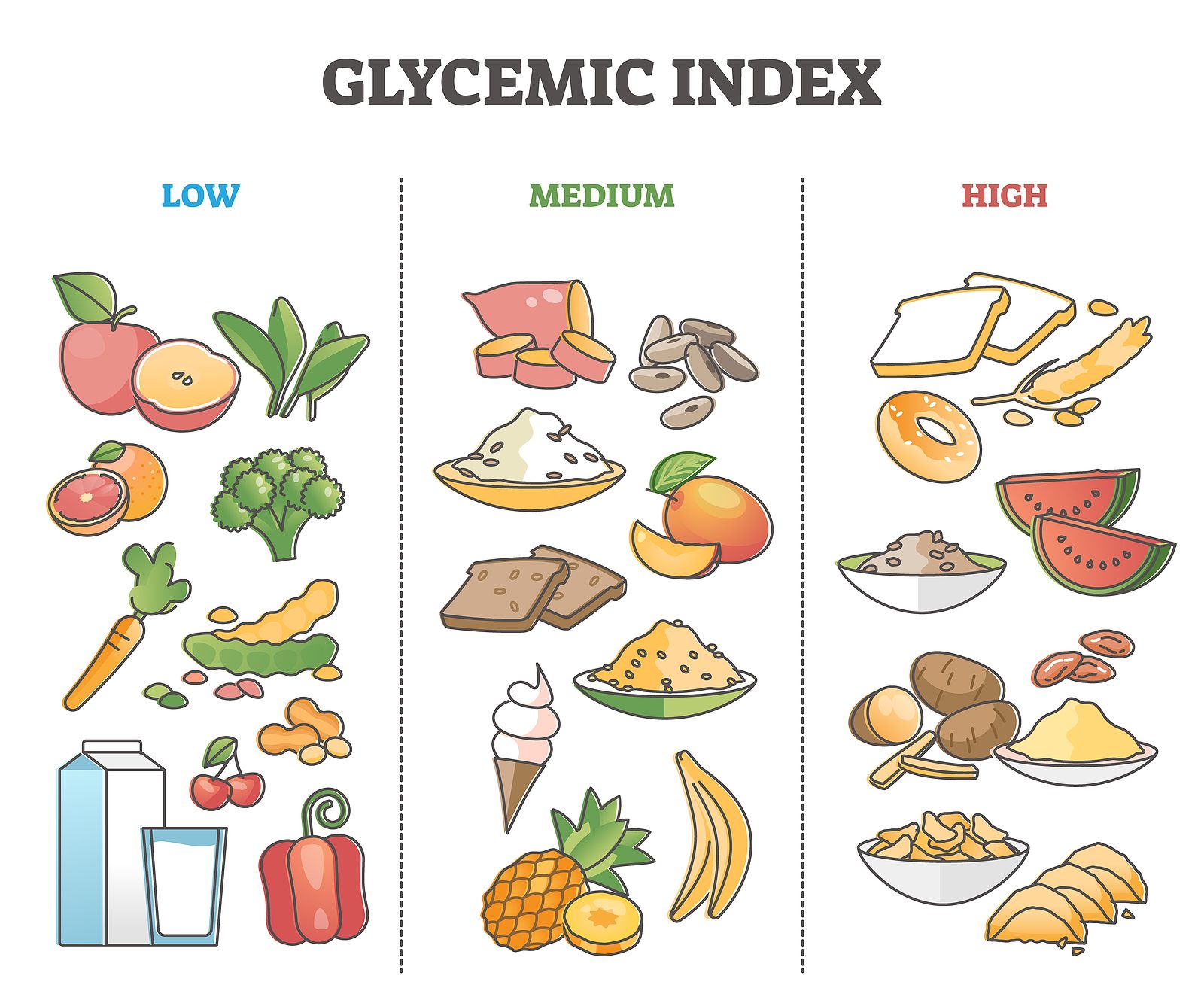Is Falling Asleep After Eating a Sign of Diabetes?
Is Falling Asleep After Eating a Sign of Diabetes? Falling asleep after eating can be indicative of various factors beyond diabetes. However, there is a connection between post-meal drowsiness and blood sugar fluctuations, which are particularly relevant in diabetes discussions.

In the world of health and wellness, our body's signals often hold valuable clues about our internal well-being. One such signal that has prompted questions is the phenomenon of feeling excessively tired or even falling asleep after a meal. Could this be a sign of diabetes? While fatigue is indeed associated with diabetes, it's essential to explore other factors that contribute to post-meal tiredness. In this comprehensive article, we'll dive into the relationship between diabetes and tiredness, the science behind blood sugar fluctuations, and the various reasons why you might experience post-meal drowsiness.
Understanding Fatigue and Diabetes
Diabetes is a chronic condition characterized by high levels of blood sugar (glucose). One of the well-known symptoms of diabetes is fatigue, a persistent feeling of tiredness that can significantly impact daily life. But why does diabetes often lead to fatigue?
The Blood Sugar Connection
In people with diabetes, the body either doesn't produce enough insulin (Type 1 diabetes) or doesn't effectively use the insulin it produces (Type 2 diabetes). Insulin is a hormone that helps regulate blood sugar levels by allowing glucose to enter cells for energy. When blood sugar remains elevated due to insulin dysfunction, cells might not receive the energy they need, leading to feelings of fatigue.
Furthermore, diabetes-related complications, such as nerve damage and poor circulation, can contribute to reduced oxygen and nutrient delivery to tissues, intensifying the sensation of tiredness.
Is Falling Asleep After Eating a Sign of Diabetes?
Falling asleep after eating can be indicative of various factors beyond diabetes. However, there is a connection between post-meal drowsiness and blood sugar fluctuations, which are particularly relevant in diabetes discussions.

High Glycemic Carbohydrates
The glycemic index (GI) categorizes carbohydrates based on their potential to raise blood sugar levels. Consuming foods with a high GI, such as sugary snacks and refined grains, can cause rapid spikes and subsequent crashes in blood sugar levels. These crashes might lead to feelings of fatigue and drowsiness.
People with diabetes are advised to manage their carbohydrate intake and choose foods with a lower GI to prevent drastic blood sugar fluctuations.
Blood Sugar Swings
The body's attempt to regulate blood sugar can result in a "rebound" effect, where blood sugar levels drop lower than usual after a spike. This drop can lead to feelings of tiredness and sleepiness, commonly referred to as the "afternoon slump."
Maintaining stable blood sugar levels through balanced meals and snacks can help mitigate this phenomenon.
Role of Fiber
Foods rich in fiber, such as whole grains, legumes, fruits, and vegetables, can slow down the digestion and absorption of carbohydrates. This helps prevent rapid spikes and crashes in blood sugar levels, contributing to sustained energy levels throughout the day.
Including fiber-rich foods in your meals can play a role in avoiding post-meal fatigue.
Tryptophan and Sleepiness
Tryptophan is an amino acid found in various foods, including turkey, chicken, dairy products, and nuts. Tryptophan is a precursor to serotonin, a neurotransmitter that regulates mood and sleep. Consuming foods rich in tryptophan can contribute to feelings of relaxation and sleepiness.
However, while tryptophan-rich foods might induce sleepiness, they are not directly linked to diabetes.
The Power of Complex Carbohydrates
In the intricate interplay of nutrition and well-being, complex carbohydrates emerge as unsung heroes, particularly when it comes to maintaining balanced digestion. These carbohydrates, found in whole grains, vegetables, and legumes, offer a spectrum of benefits that extend beyond energy provision.

Steady Energy Release
Unlike their simpler counterparts, complex carbohydrates boast a complex molecular structure that takes longer to break down. This gradual breakdown results in a slower release of glucose into the bloodstream, providing a sustained and steady source of energy. This property is especially advantageous for individuals seeking to manage post-meal tiredness and blood sugar fluctuations.
Blood Sugar Stabilization
Complex carbohydrates contribute to stable blood sugar levels due to their slow digestion and gradual glucose release. This steadier rise in blood sugar reduces the risk of sudden spikes and crashes, thus promoting overall metabolic balance. For those grappling with diabetes or desiring sustained energy levels, embracing complex carbs can be a game-changer.
Gut Health Enhancement
The fiber content abundant in complex carbohydrates serves as nourishment for the beneficial bacteria residing in our gut. These microbes play a pivotal role in maintaining gut health, aiding digestion, and supporting immune function. The fermentation of dietary fiber by gut bacteria generates short-chain fatty acids, which contribute to a thriving gut environment and contribute to overall digestive wellness.
Navigating Post-Meal Tiredness
Whether you have diabetes or not, managing post-meal tiredness involves making thoughtful dietary choices and considering your overall lifestyle.
- Balanced Meals: Aim for balanced meals that include a combination of protein, healthy fats, and complex carbohydrates. This can help stabilize blood sugar levels and prevent energy crashes.
- Mindful Carbohydrate Choices: Opt for carbohydrates with a lower glycemic index to avoid rapid blood sugar fluctuations. Incorporate whole grains, vegetables, and legumes into your meals.
- Regular Physical Activity: Engaging in regular exercise can improve insulin sensitivity and help regulate blood sugar levels. It can also enhance overall energy levels and reduce fatigue.
- Stay Hydrated: Dehydration can contribute to feelings of tiredness. Stay adequately hydrated throughout the day to support your energy levels.
- Portion Control: Avoid overeating, as consuming large meals can divert blood flow to the digestive system and lead to drowsiness.
The Bottom Line
While feeling tired after eating can be associated with diabetes due to blood sugar fluctuations, it's essential to consider other factors that might contribute to post-meal fatigue. High glycemic carbs, blood sugar swings, fiber content, and even tryptophan-rich foods can all play a role in how you feel after a meal. If you're concerned about your energy levels or suspect you might have diabetes, it's crucial to consult a healthcare professional for accurate diagnosis and guidance. Maintaining a balanced diet, staying active, and being attuned to your body's signals can all contribute to managing post-meal tiredness effectively, whether you have diabetes or not.